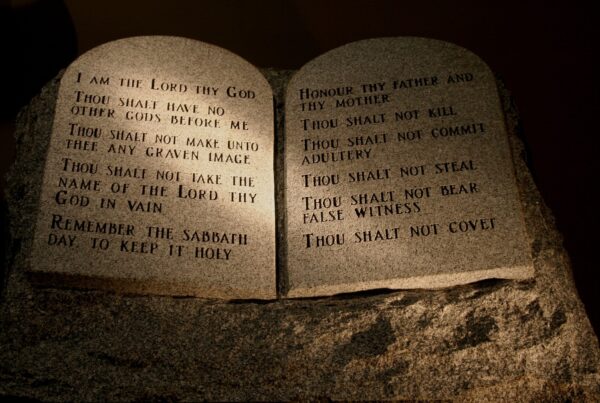Bible Study on Isaiah 55: 1-7 (NOW)
The focus of today’s Bible study is Isaiah Chapter 55: 1- 7, a powerful invitation from God extended to all humanity. Isaiah, one of the greatest prophets in Israel’s history, ministered during the 8th century BC and beyond. While the earlier chapters of his book address the challenges of his time, chapters 40 through 66, including Chapter 55, are widely understood to reflect the period of the Babylonian exile in the 6th century BC. In this chapter, Isaiah serves as God’s mouthpiece, urging Israel, Judah, and the nations to turn to God for true spiritual nourishment and salvation.
Invitation to Salvation (Verse 1)
The chapter opens with a compelling invitation:
“Ho! Everyone who thirsts, come to the waters; and you who have no money, come, buy and eat. Yes, come, buy wine and milk without money and without price.”
The word “Ho” is the Hebrew term hoy, signifying an urgent call for attention—much like saying, “Listen closely!” Here, God, through Isaiah, extends an invitation to all people, not only the Israelites. This universal call highlights God’s grace, as the offer of salvation is freely given and not confined by ethnicity or merit.
The imagery of water, wine, and milk symbolizes spiritual satisfaction and abundance. Those who “thirst” are individuals longing for God’s presence and truth. In John 7:37, Jesus echoes this invitation, saying, “If anyone thirsts, let him come to Me and drink.” Similarly, in John 4, Jesus tells the Samaritan woman at the well that whoever drinks the water He provides will never thirst again—it will become a fountain springing up into eternal life. In Revelation 22:17, God offers the water of life freely to all who are thirsty. This consistent theme across Scripture underscores that salvation is both essential and freely available.
The invitation to “buy without money” reinforces that salvation cannot be purchased or earned. As Paul writes in Romans 3:23-24, “For all have sinned and fall short of the glory of God, being justified freely by His grace through the redemption that is in Christ Jesus.” Salvation is an unearned gift of grace, available through Jesus Christ. As Acts 2:38 instructs, the response to this gift is repentance, baptism in Jesus’ name, and receiving the Holy Spirit.
Seeking True Nourishment (Verses 2–3)
Isaiah continues:
“Why do you spend money for what is not bread, and your wages for what does not satisfy? Listen carefully to Me, and eat what is good, and let your soul delight itself in abundance. Incline your ear, and come to Me. Hear, and your soul shall live; and I will make an everlasting covenant with you—The sure mercies of David.”
Here, God challenges the people, asking why they invest in things that fail to satisfy. The “bread” represents true spiritual sustenance, fulfilled in Jesus Christ, who declared in John 6:35, “I am the bread of life. He who comes to Me shall never hunger.” By inviting the people to “eat what is good,” God promises that their souls will find delight in abundance—a reference to eternal life and spiritual fulfillment.
The “everlasting covenant” refers to God’s promise of steadfast mercy and faithfulness, exemplified in His covenant with King David (2 Samuel 7). Though David sinned, God remained faithful to him, demonstrating grace and mercy that transcends human failure. This covenant ultimately finds its fulfillment in Jesus Christ, the descendant of David, who establishes an eternal kingdom.
God’s Plan for the Nations (Verses 4–5)
Isaiah declares:
“Indeed I have given him as a witness to the people, a leader and commander for the people. Surely you shall call a nation you do not know, and nations who do not know you shall run to you, because of the Lord your God, and the Holy One of Israel; for He has glorified you.”
Here, David is presented as both a witness and leader for the people of Israel. David’s life and relationship with God serve as a testament to God’s faithfulness and grace. He not only led Israel but also demonstrated repentance and submission to God, even in failure.
The second part of this passage shifts to the future. Isaiah prophetically speaks to the exiled Israelites, assuring them that nations previously unknown to them will be drawn to Israel because of God’s blessings. This points to the inclusion of Gentiles in God’s redemptive plan, ultimately fulfilled through Jesus Christ, whose glorification draws all people to God (John 12:32).
A Call to Action (Verses 6–7)
Isaiah emphasizes the urgency of seeking God:
“Seek the Lord while He may be found, call upon Him while He is near. Let the wicked forsake his way, and the unrighteous man his thoughts; let him return to the Lord, and He will have mercy on him; and to our God, for He will abundantly pardon.”
This passage underscores that God will not always be available to be sought. This does not imply God’s presence is limited but rather highlights the finite opportunity humans have to repent. For example, in the days of Noah, the people had 120 years to repent before the flood, but once the rain came, God shut the door to the ark, leaving them outside (Genesis 7:16). Similarly, in Matthew 25, the parable of the ten virgins illustrates the consequences of spiritual unpreparedness. When the bridegroom arrived, the five foolish virgins who lacked oil (representing the Holy Spirit) were shut out, and Jesus said, “I do not know you.”
These examples demonstrate the importance of responding to God’s call now. Life is uncertain, and after death, there is no opportunity for repentance (Hebrews 9:27). Isaiah calls the people to forsake their sinful ways and return to God, assuring them that God, in His mercy, will forgive and abundantly pardon those who truly repent.
Conclusion
Isaiah 55 is a profound invitation to partake in God’s free gift of salvation. It reminds us of God’s abundant grace, the urgency of repentance, and the joy of eternal life. Just as God extended His covenant to Israel, He extends it to us today. We are called to repent NOW, be baptized in Jesus’ name NOW, and receive the Holy Spirit with the evidence of speaking in tongues Now, while He may be found.
The offer of salvation is free, but the time to accept it is not infinite. Choose today to follow God and experience the true satisfaction that only He can provide.




